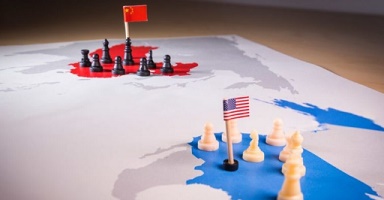What are the economic problems?
We explain what are the economic problems, the three basic types and the most frequent. In addition, economic problems in Mexico.
-
What are the economic problems?
Economic problems are understood as the set of phenomena produced when resources are not sufficient to meet their own needs . This can happen with both the resources of nations, organizations and people.
Precisely, the economy studies how to meet the needs of the population , through a finite set of resources and possibilities. Countries and organizations invest much of their efforts in preventing economic problems, ensuring the greatest possible stability in this area.
This type of inconvenience triggers other social , cultural and political problems . Neglected, economic problems can grow or become more complex, to finally open the door to more catastrophic or irreparable situations.
In general, economic problems are understood as those that refer to the financial, budgetary, productive or similar aspects.
-
Types of economic problems

There are many types of economic problems, but according to classical doctrine, the three main ones are :
- The orientation of the productive process . That is, the decision of what and how many goods will be produced, when they will be produced and what elements their production implies. Without this decision made beforehand, the production process cannot even begin.
- The organization of the production . That is, how will the goods be produced? Through what methods, and where? In these questions the criterion is enclosed by which the production must occur, and which will define much of the process and the results obtained.
- The allocation of production . That is, for whom are these goods produced? How are they going to be distributed? How will the productive effort be remunerated among workers ? Without these details resolved, production runs the risk of being useless, of having produced for anyone.
These three basic dilemmas describe what is necessary to plan to avoid incurring the most frequent economic problems , such as:
- Inflation . The progressive loss of the value of the currency in front of the market, that is to say, that with the same amount of money it is bought less and less.
- Economic stagnation . There is talk of economic growth when the amount of commercial and financial operations in a nation increases, and of stagnation or recession when there is no growth or when the opposite occurs, respectively.
- I unemployment . Lack of work and therefore of incorporation into the productive engine of society of a variable number of people . High levels of unemployment translate into increased poverty.
- Poverty . When a segment of the population is economically unable to meet their own needs, thus depending on the help of others or the State , or even incurring irregular activities as the sole source of income .
- Devaluation . Fall in the international value of a currency against those of other countries, due to an unfavorable balance of exchange or an increasing disparity in the type of operations carried out in the strongest currency, rather than in the weak one.
-
Economic problems in Mexico
Mexico, like many other Latin American nations , has an unstable economy, at least compared to the countries of the so-called First World. This can be seen in its main economic problems, which are:
- Devaluation of the peso . The rise in US interest rates during the government of Donald Trump, given the interconnectedness of the Mexican economy with that of its northern neighbor, caused the loss of strength of the Mexican peso and forced devaluation.
- Fall in oil prices . After the huge bonanza that meant the rise in the price of raw material at the beginning of the 21st century , the price of oil has plummeted and that means a significant reduction in Mexican economic income.
- Corruption . It is rather a problem of a social or political nature , but it always has a high economic impact. Waste, bad money or public tenders for lost money, in short, the traps that do not benefit the local economy but the pocket of third parties, are a common problem throughout the Third World.





